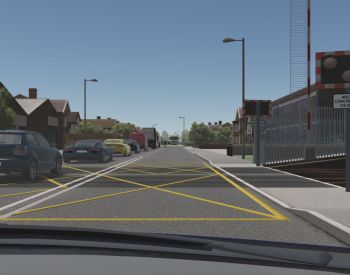New findings from Thales reveal need to use approaches from the aerospace industry to assure safe autonomous vehicles
New research from XPI’s parent company, Thales, reveals that over half of UK citizens (57%) would not feel safe riding in a self-driving car. The UK government has stated its vision to have driverless cars on UK roads by 2021 but nearly a quarter of the UK public (23%) said they feel apprehensive about the prospect of self-driving cars on the roads in the next three years, while a fifth of respondents (20%) felt fearful. Only 12% were either excited or optimistic.
In fact, just 16% of the UK public said they would feel safe riding in a self-driving car with the biggest concern being the safety of pedestrians (56%), closely followed by:
- The safety of the passengers (51%)
- A rise in in, potentially fatal, accidents (49%)
- Connectivity failures (35%)
- Cyber-attacks and hacks on personal data (29%)
In comparison, nearly two thirds of respondents (65%) said they feel safe when flying on-board an aeroplane. Pilots undergo rigorous testing and training, with the use of simulation, to ensure flight safety – a role that Thales has long-standing heritage in.
Dr Alvin Wilby, VP of Research, Innovation and Technology at Thales UK said, “For the government’s 2021 vision to become a reality, autonomous cars must not only ‘be’ safe, but also be perceived as safe by the public. By using synthetic environment technologies – currently used for full flight simulators in aerospace and vehicle simulators – we are able to subject autonomous driving systems to a huge numbers of scenarios, to gain confidence in their safety. We, essentially, subject AVs to a much more rigorous “driving test” than we do with human drivers.
“If successful, this work will lay the foundations for the development and certification of all types of unmanned vehicles – in any situation and every environment.”
Professor Paul Jennings, lead for Intelligent Vehicle research at WMG, University of Warwick comments, “There is potentially a lot that can be learned from other sectors when it comes to certifying the safety of AVs. For example, by using Artificial Intelligence (AI) to run simulations of real-life scenarios, we might learn more quickly how driverless cars will operate across the UK’s challenging urban and rural road networks, and to ensure that they safely interact with other road users”.
Simulating for Safety
XPI Simulation is working with partners on two key projects that seek to develop simulation for autonomous vehicle testing - CAVinSE and OmniCAV. These projects seek to harness the power of simulation to carry out controlled, safe and repeatable testing at great scale, in order to reduce the amount of on-road testing that might otherwise be required.
You can read the full report, Making Driving as Safe as Flying in an Autonomous World, here.
More News
Get in Touch
Ask an XPI Simulation expert to help using our simple form. We understand that each customer has different budget and performance requirements, so we work with our customers to offer a complete range of systems that are fully scalable and flexible to meet their specific needs.



